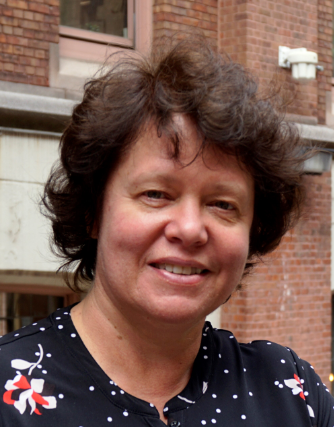Keynote Speakers
 Prof.
Irina Lyublinskaya
Prof.
Irina Lyublinskaya
Columbia University, USA
Irina Lyublinskaya received her Ph.D. in Theoretical and Mathematical Physics from Leningrad State University in 1991. She has taught at the university as well as the high school level for over 30 years. Among her research interests are topics of integrating technology into mathematics and science education, pre-service and in-service professional development of STEM teachers, curriculum development, and international STEM education. She is a recipient of various awards for teaching excellence, including Radioshack/Tandy Prize for Teaching Excellence in Mathematics, Science, and Computer Science, NSTA Distinguished Science Teaching Award and citation, Education’s Unsung Heroes Award for innovation in the classroom, and NSTA Vernier Technology Award. In 2011, she was inducted to the NYS Mathematics Educators Hall of Fame. In 2019 she was elected as a full member of the Russian Academy of Natural Sciences. She is a recipient of several outstanding paper awards from AACE and SITE, an author/co-author of 16 books, 14 book chapters, and has published substantially in academic journals.
Title: Digital Transformation: Past, Present and Future of Research on Educational Technology
Abstract: The integration
of technology into the classroom has
progressed rapidly in recent decades.
What began as the rare computer or
television brought within the school
walls has evolved into an abundance of
digital devices and platforms that are
fundamentally transforming how we teach
and learn. What opportunities are
brought by digital technology for
teaching challenging but difficult
topics? Which factors are decisive in
improving student learning, providing
for deeper learning, motivated learning,
more efficient or more effective
learning? As we enter an era of
increasingly “smart” technologies like
AI, adaptive platforms, immersive
technologies, and intelligent tutoring
systems, their potential to enhance
education warrants examination.
This presentation will provide an
overview of major milestones in research
on educational technology and discuss
future directions in education research.

Prof. HEW, Timothy K. F.
The University of Hong Kong, China
Dr Khe Foon HEW is a recognised expert in the field of Information Technology in Education. Armed with a bachelor degree in Computer Technology from the Nanyang Technological University Singapore, Dr Hew had worked for four years as an Associate Systems Engineer at Sony Systems Design International before moving on the educational field. He has a master degree in Instructional Design and Technology from the Nanyang Technology University, and a PhD in Instructional Systems Technology from the USA. Dr. Hew is currently a professor of education at the University of Hong Kong. His work has two main objectives: to systematically develop and evaluate theoretical based instructional strategies that could engage learners in online and blended learning environments, and to investigate knowledge sharing in online communications. Since 2015 Dr Hew has been listed as one of the “top 1%” most cited scholars in his field based on the Web of Science database. Altogether, Dr Hew has won more than 50 types of recognitions/awards.
Title: Addressing Student Apathy in Online Activities: Lessons from Gamification
Abstract: Although the pandemic has officially ended, online learning has become an option for students to complete their courses due to its flexibility and convenience. Online learning is also an essential component of blended learning, which is expected to grow in popularity in higher education. However, the lack of student engagement in online learning activities remain a persistent problem to many educators. In this seminar, I shall describe the use of gamification as a possible strategy to engage online students. Despite the buzz around gamification as a possible method to engage individuals, it has also attracted controversy and disparaging labels such as ‘gamification is bullshit’. Drawing upon several theoretical perspectives, I will present a theory-driven “meaningful gamification” model called the GAFCC-F model comprising of goals, access, feedback, challenge, collaboration, and fantasy. In this presentation, I will highlight some of the important findings regarding the effect of this model on student engagement. I will also discuss several future directions of gamification in education research.